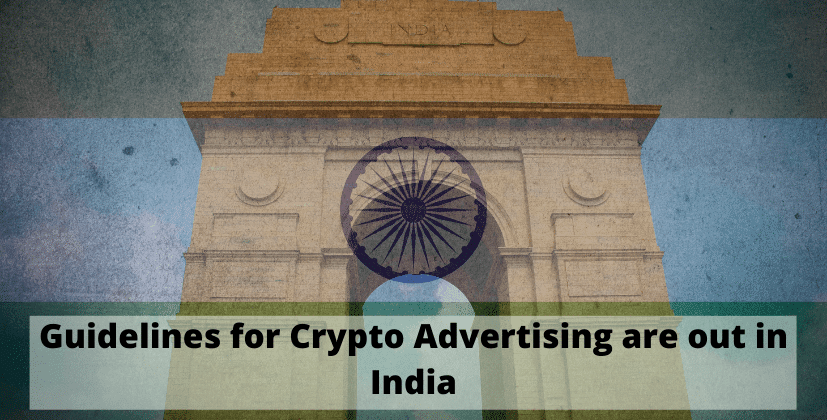The Advertising Stands Council of India (ASCI) has issued guidelines for crypto or digital assets related ads that will take effect from April 1 or later. Advertisements from earlier dates cannot be placed on the internet, unless they are in compliance with the guidelines that were released after April 15th 2022.
The ASCI stated that it conducted extensive consultations “with various stakeholders, including the government officials and the virtual digital assets industry” to formulate the guidelines.
The main guideline is that all advertisements that promote VDA (virtual digital asset) products as well as VDA exchanges or with VDAs to include the following statement: “Crypto products and [non-fungible tokens] are not regulated and could be extremely risky. There is no legal recourse in case of loss resulting that results from these transactions.”
As per the guidelines, the terms “currency,” “securities,” “custodian” and “depositories” are not allowed to be used in advertising for VDA items or other services due to the fact that consumers may associate these terms with products that are controlled.
The guidelines also stipulate that the costs or profits of VDA products to include precise, complete, and current information. For instance, “zero cost” will require all the costs that a consumer may reasonably consider to be associated with the deal or offer.
The guidelines stipulate that “returns for shorter periods than 12 months must not be used” in ads in order to ensure that “information about past performance should not be made available in any bias or incomplete manner.”
India’s watchdog for advertising has stated that some of the crypto-related ads “do not adequately explain the risks that come with such products.”
The month of November was when India Prime Minister Narendra Modi chaired a meeting to look at the potential for regulation of cryptocurrency. In the meeting, according to the reports, a unified agreement was reached to stop “attempts to mislead youth with over-promising or non-transparent ads.”

